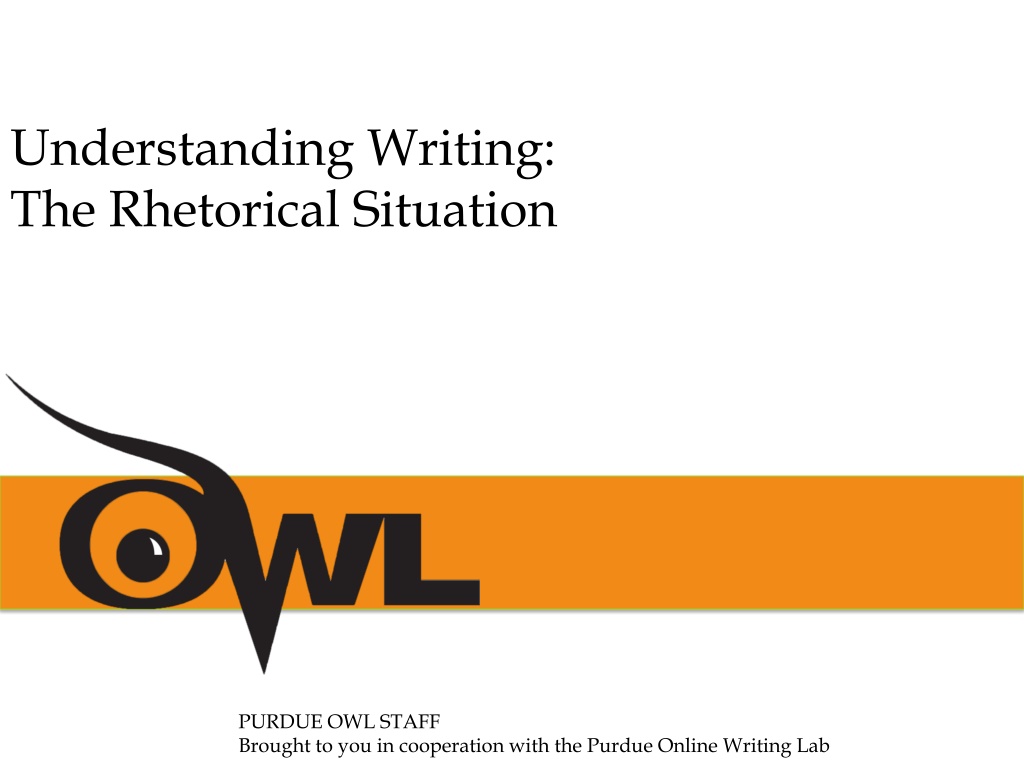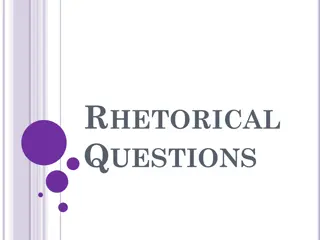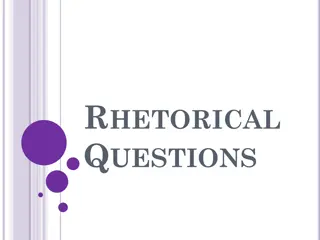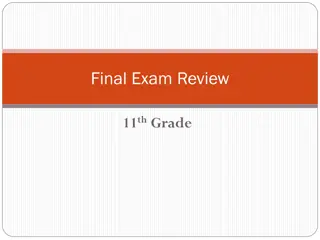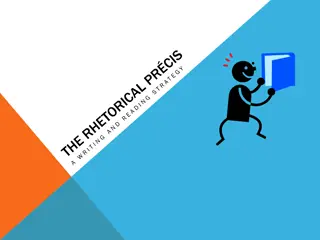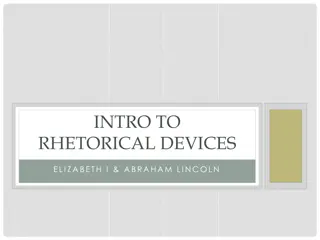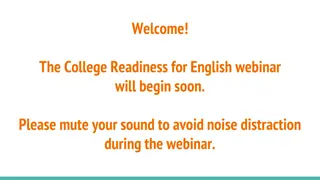Mastering the Rhetorical Situation in Writing
Explore the key elements of the rhetorical situation - culture, context, writer, audience, purpose, topic, genre, and audience. Understand how factors like age, experiences, and education influence your writing. Learn how context, timing, and cultural significance shape the need for writing, all while considering the impact on persuading, informing, educating, or entertaining your readers.
Uploaded on Sep 22, 2024 | 0 Views
Download Presentation

Please find below an Image/Link to download the presentation.
The content on the website is provided AS IS for your information and personal use only. It may not be sold, licensed, or shared on other websites without obtaining consent from the author.If you encounter any issues during the download, it is possible that the publisher has removed the file from their server.
You are allowed to download the files provided on this website for personal or commercial use, subject to the condition that they are used lawfully. All files are the property of their respective owners.
The content on the website is provided AS IS for your information and personal use only. It may not be sold, licensed, or shared on other websites without obtaining consent from the author.
E N D
Presentation Transcript
Understanding Writing: The Rhetorical Situation PURDUE OWL STAFF Brought to you in cooperation with the Purdue Online Writing Lab
What is a Rhetorical Situation? Rhetoric: Using language effectively to persuade, inform, educate, or entertain. Rhetorical Situation: The circumstances in which you communicate.
The Rhetorical Situation Culture Context Writer Audience Purpose Topic
The Writer Your culture, personal characteristics and interests affect what you write about and how you write it.
Factors Factors which can affect your writing: Your age Your experiences Your gender Your location Your political beliefs Your parents and peers Your education
Purpose Entertain Call for action Inform My Purpose Educate Shock Persuade
Genre A genre is a category or type of writing. Genres hinge upon purpose and the needs/expectations of the projected audience. Examples: fiction, autobiographical story, news article, review, letter to the editor/editorial, rhetorical analysis, criticism, persuasive essay.
Audience Your audience is to whom you are writing. Many of the same factors which affect the writer also affect the audience, including: Age Social class Education Past experience Culture/subculture
Topic A topic is what you will write about. May be broadened or narrowed depending on the length of your writing and your interest. Topics should be appropriate to the rhetorical situation you are in.
Context Contextis the situation which generates the need for writing. Context is affected by the: Time period or timing Location Current events Cultural significance
We Have Covered Remember the components of the rhetorical situation: 1. Writer 2. Purpose 3. Audience 4. Topic 5. Context 6. Culture
Where to Go for More Help Purdue University Writing Lab, Heavilon 226 Check our web site: http://owl.english.purdue.edu Email brief questions to OWL Mail: https://owl.english.purdue.edu/contact/owlmailtutors
The End UNDERSTANDING WRITING: THE RHETORICAL SITUATION Purdue OWL staff Brought to you in cooperation with the Purdue Online Writing Lab
